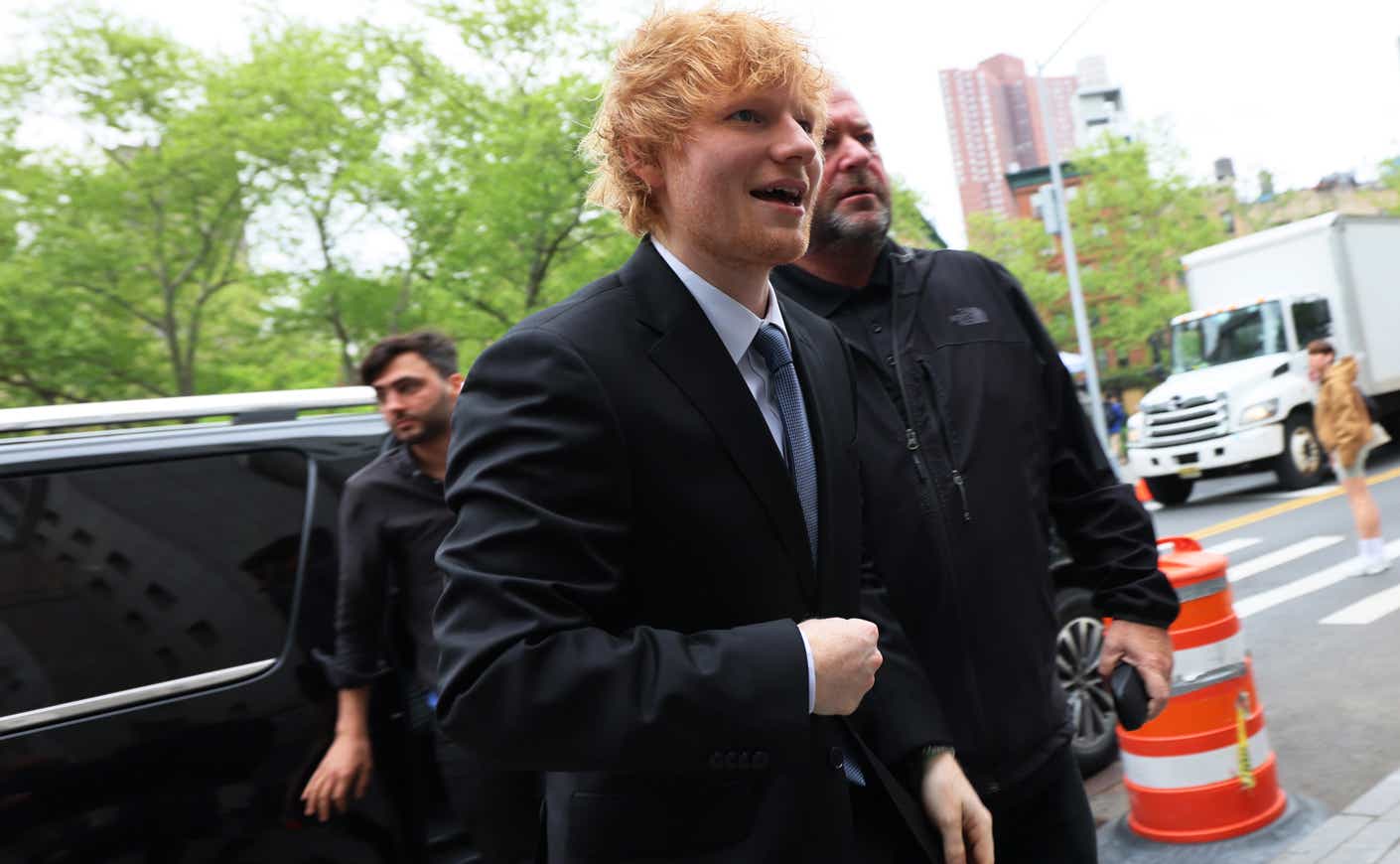After thinking out loud for three hours, a Manhattan jury found Ed Sheeran not guilty of copying Marvin Gaye's 1973 hit "Let's Get It On" in his 2014 track, "Thinking Out Loud."
The heirs of Ed Townsend, Gaye’s co-writer, claimed in a 2017 lawsuit that there are “striking similarities” and “over common elements” between the two songs, but Sheeran, who’s no stranger to copyright disputes, won out. "I feel like the truth was heard and the truth was believed," Sheeran told PEOPLE shortly after the verdict. "It's nice that we can both move on with our lives now — it's sad that it had to come to this."
During the week-long trial, Sheeran testified that "most pop songs can fit over most pop songs" and has previously said, "there's only so many notes and very few chords used in pop music." He even performed a live rendition of "Thinking Out Loud" in front of the jury — and said he actually was inspired by Van Morrison for this particular tune.
Had Sheeran lost the case, it could have had huge ramifications for the music industry and drastically limited songwriters' ability to create — and Sheeran himself may have quit the business altogether. "If that happens, I'm done, I'm stopping," Sheeran previously told CBS Sunday Morning. "I find it to be really insulting. I work really hard to be where I'm at." Thankfully, with the jury on his side, he'll continue to make more chart-topping hits.
The case is only the latest in a long history of similar disputes within the music industry. Here’s a look at some of the biggest songs to have come under fire (including another incident involving Marvin Gaye).
"Surfin’ USA"
The Beach Boys’ Brian Wilson has said that their catchy hit was meant to pay tribute to rock and roll legend Chuck Berry. But Berry’s legal team were none too happy with that explanation, calling the band out for plagiarizing 1958’s "Sweet Little Sixteen." However, the case never reached a courtroom; The Beach Boys agreed to give the publishing rights to Arc Music, Berry’s publisher, and eventually gave Berry a songwriting credit, Rolling Stone reports.
"Stairway to Heaven"
In 2014, Led Zeppelin was sued over their 1971 classic "Stairway to Heaven." The band Spirit claimed the song’s iconic introduction was stolen from their 1968 tune "Taurus", which includes a similar acoustic passage. The legal battle stretched on for four years — including the initial suit and a subsequent appeal — but ultimately, Led Zeppelin was successful in defending one of the best-known rock anthems (with a little help from the Trump administration).
"Ice Ice Baby"
It’s pretty obvious that the distinctive bassline that runs through Vanilla Ice’s "Ice Ice Baby" is a sample of Queen and David Bowie’s rock masterpiece, "Under Pressure." In a widely ridiculed interview, the rapper denied that he’d lifted the melody, claiming the two were clearly distinct because his version added a beat. In the end, the artists settled out of court for an undisclosed sum. Bowie and Queen were also given songwriting credits on the track.
"Blurred Lines"
The song is still streamed at hundreds of parties each year, but a portion of those royalties don’t go to the hit’s creators, Robin Thicke and Pharrell Williams. Instead, they land in the pockets of Marvin Gaye’s children, who were also awarded about $5 million after suing over "Blurred Lines" in 2013. The decision is considered one of the most controversial in the music copyright space — and it opened the door to a stream of litigation that targeted artists for a somewhat vague resemblance between pieces. As a dissenting judge in an appeal wrote, it allowed a creator to essentially “copyright a musical style.”
"Shake It Off"
Taylor Swift was taken to court over the 2014 song that turned her into a pop crossover queen. The songwriters behind the 2000 track "Playas Gonna Play" by 3LW say Swift plagiarized their lyrics, which includes the lines: “Playas, they gonna play/And haters, they gonna hate.” And if you need a reminder, the chorus of "Shake It Off" goes: “Cause the players gonna play, play, play, play, play/And the haters gonna hate, hate, hate, hate, hate.” A judge dismissed the case, declaring that the lines in question were “short phrases that lack the modicum of originality and creativity required for copyright protection.”









